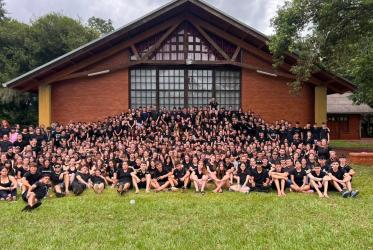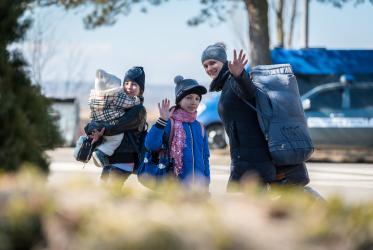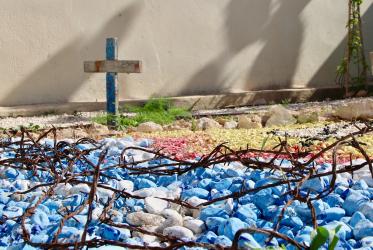The commission was founded in 1973 by the World Council of Churches (WCC) with the goal of caring for Chilean exiles persecuted by the dictatorship of Augusto Pinochet. However, soon Argentina itself and several Latin American countries fell under the same yoke.
With the dictatorships in the region persecuting, torturing, and massacring, hundreds of people found refuge and had their lives saved thanks to the commission’s testimony and assistance.
In the same way, today there are many who receive guidance every month to walk and improve their conditions as migrants.
The Argentine Commission for Refugees and Migrants currently also serves people in border areas (Misiones, Jujuy, and Mendoza), where it carries out joint tasks with the UN Refugee Agency and with public hospitals and organizations that coordinate various types of assistance.
“A program has been established from a legal perspective, and that goes along different lines, the central being the direct care of people, because it is there where we, from a professional and interdisciplinary team, listen to the problems and define intervention strategies,” remarked Gabriela Liguori, executive director of the Argentine Commission for Refugees and Migrants.
Liguori also highlighted the importance of advocacy at the public level as an opportunity to show the reality of migrants and make people aware of racism and xenophobia constantly targeting migrants.

The black line on the map of South America at the headquarters of the Argentine Commission for Refugees and Migrants marks one of the main current itineraries of migration in the region.
Before the pandemic, the Argentine Commission for Refugees and Migrants assisted an average of 2,000 people per year and now it exceeds 4,000. In the last three years, most assistance has been related to people from Venezuela. However, the historical population has always been Bolivian, Paraguayan, Peruvian and, in a sense, also Colombian.
Lately, migrants from Haiti and the Dominican Republic have joined, which brings with it the great challenge that they are, to a greater extent, also victims of racism and xenophobia.
The work of advice and support is carried out by a large interdisciplinary team of social workers, psychologists, lawyers, administrators, and communicators.
However, the role of the churches is fully present, while the formation of the institution is made up of the Evangelical Church of the River Plate, Disciples of Christ, Evangelical Methodist Argentina, Evangelical Valdense of the Río de la Silver, and United Evangelical Lutheran.
David Cela Heffel, member of the Evangelical Church of the River Plate, and a member of the current board of directors who presided over the institution for several years, explained the importance of the institution: "Our church understands its task in an ecumenical way because the vast majority of us are immigrants or relatives of immigrants,” he said, highlighting that the church has many migrations from Brazil to Paraguay, from Paraguay to Argentina, and from Uruguay and Argentina.”
There are many churches that are strengthened with the accompaniment of the Argentine Commission for Refugees and Migrants. One of them is the Waldensian community of Flores, which works in the same building and is made up of Bolivian and Peruvian migrants, among other nationalities.
As part of the work of the church, food baskets had been delivered to the most needy members for some time, but "the pandemic made things a lot worse and we started working together with the the Argentine Commission for Refugees and Migrants," said Pastor Alfredo Servetti Gonnet.
This new proposal helped to assist several more families with food. "This was very important shared work and experiences that we continue and strengthen, in order to be able to assist people, which has challenged us to work from another place, not only in technical assistance, but in community inclusion,” he concluded.
In 2023, the the Argentine Commission for Refugees and Migrants will celebrate 50 years of service, with ears alert and arms open to welcome and help migrants or people in need of asylum.
WCC photo gallery featuring the head office of the Argentine Commission for Refugees and Migrants







